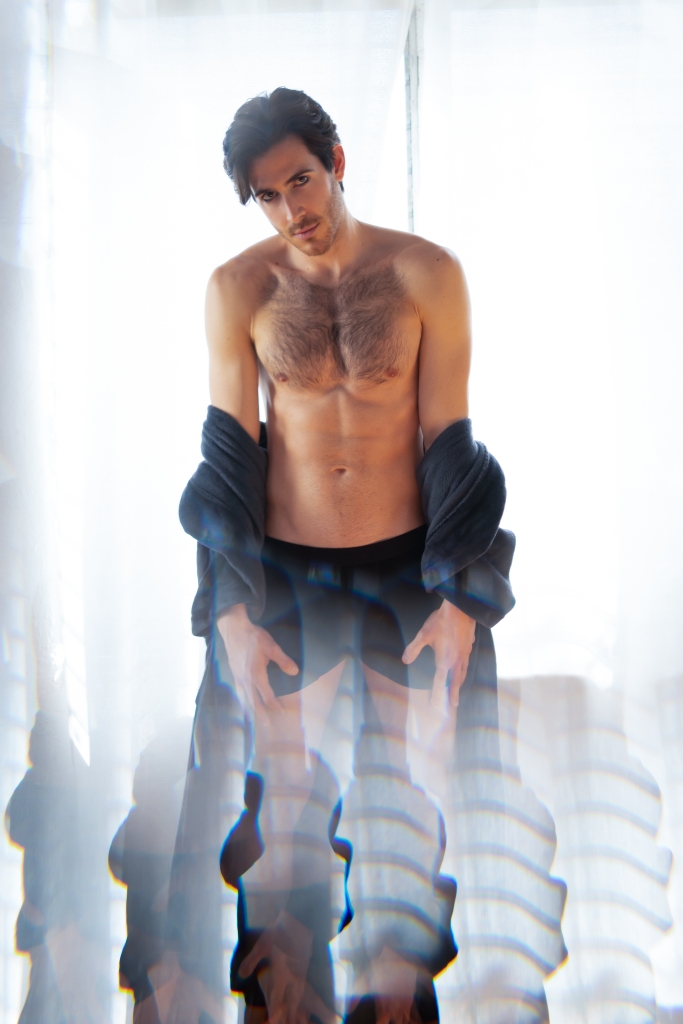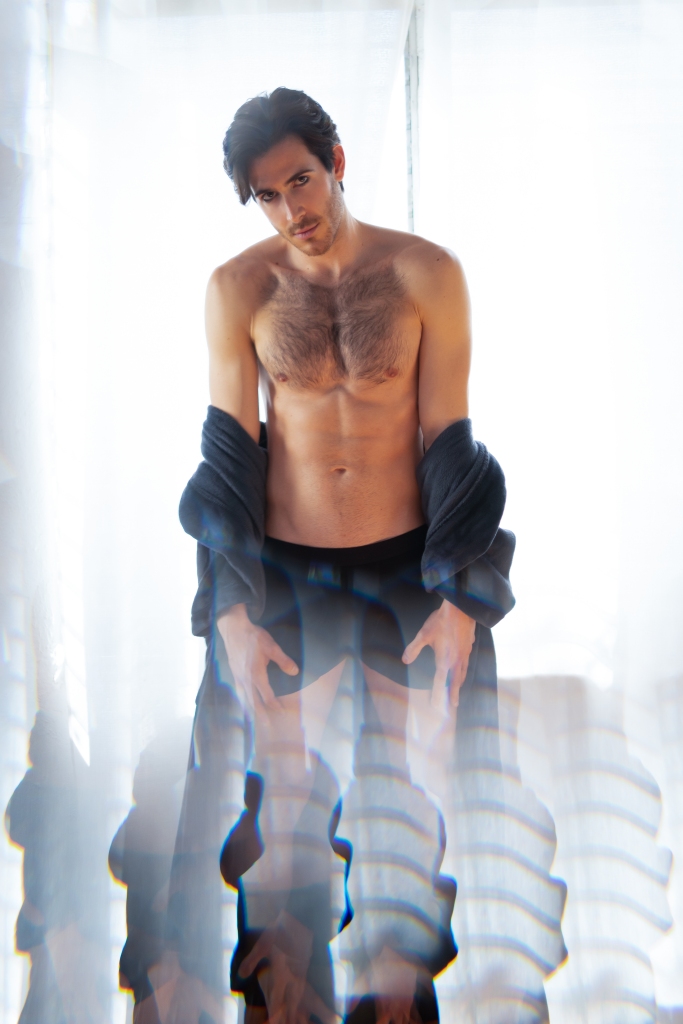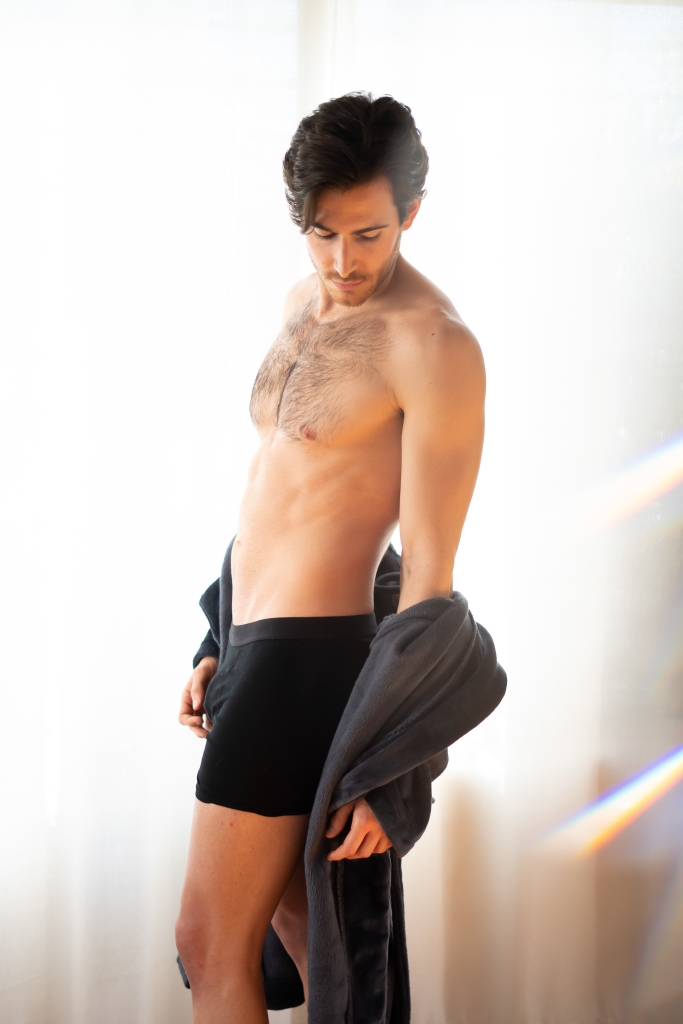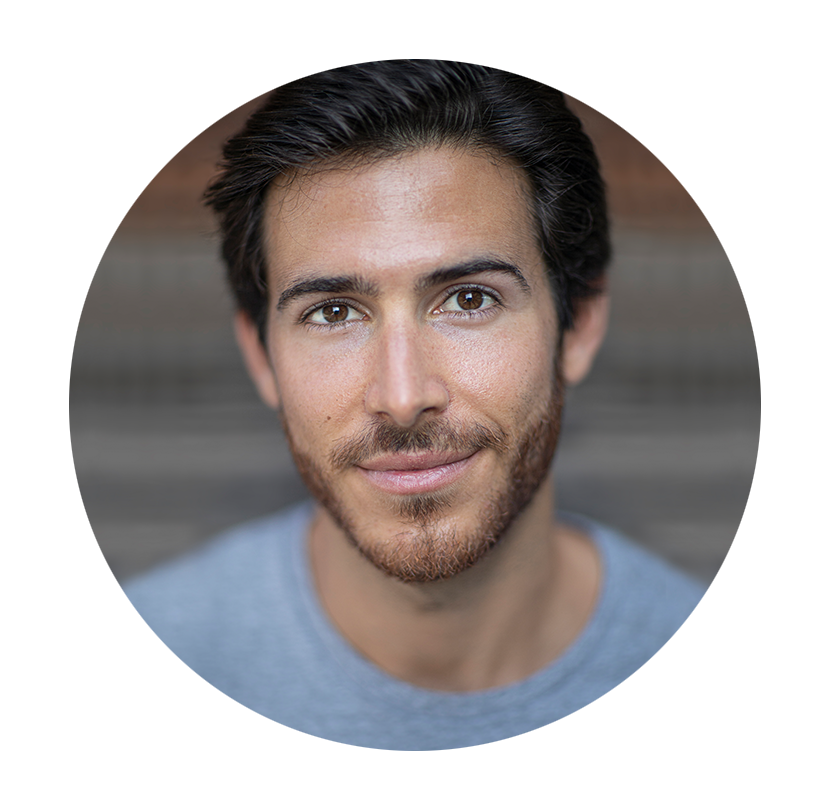I believe that vulnerability and empathy are essential elements to a kinder world and better future. With that belief, I want to share with you about my relationship with my body and with food as it has been and as it is now. This relationship has been a journey that has at times included disordered eating, body dysmorphia, toxic fitness, and deep insecurities. My hope in this vulnerable share is that others who have struggled or who are struggling on similar paths will find a relatable voice, know they are not alone, and be inspired to take outer and inner action toward positive change. Additionally, I seek to add to the ongoing conversation around these topics with the wish that more people will hold space and empathy for those who have endured these challenges. With that, my story.

My relationship with my body negatively shifted when I was 17 years old. Prior to 17, my body and I had decent relations – I was overall healthy, relatively active, and comfortable in my skin. It all changed, however, when I returned from my high school choir’s trip to China. I received the developed pictures from the trip (it was the mid 2000’s and I was still using disposable film cameras). I was alarmed at my appearance in the photos; I looked puffy, bloated, approaching plump even. Now, I was not overweight by any means, I was not even what some would label as “chubby”, but my face had become more rounded and my belly more extended than I had ever seen myself apart from the typical fuller phase I had gone through as a growing child.
Concerned and reared in a society that greatly values external validation, I asked my best friend at the time (who I had a borderline toxic relationship with) if he had noticed a change in my appearance. With his six-pack visible through his thin t-shirt, he affirmed that I had gained weight, poked my lower belly, and said “Pudgy.” That interaction was and forever is burned into the fabric of my memory. I remember feeling as though my worth had dropped because my shape had morphed into one that was devalued and even frowned upon by my society. Suddenly, I understood the inner hardship many of my female identifying friends had expressed enduring as they compared their own bodies to the female bodies the culture around us glorified. My girl-friends felt inferior to the models and actresses in the magazines with their blonde hair, flat abs, and size 2 figures. I too felt inferior as I contrasted myself to the lean, sculpted, ab-tastic male models in the cologne commercials and in the windows of Abercrombie & Fitch.
The message was clear – as a man, if you did not have chiseled muscles and a whittled six-pack, you were not the optimum man. Looking back now, I realize that this subliminal messaging was particularly potent to me for a couple of different reasons. The first was that, like everyone, I was an impressionable teenager. The second was that I was suppressing my queer nature and in that inner conflict already felt subordinate in my manhood. Externally my body’s shape was deemed as undesirable and internally I knew that many would view my true sexuality as abominable. It was in this perception that deep insecurities were born and a hard journey was begun.

Feeling lesser in my newly developed form, I decided to address the issue of my shape head on. In this endeavor, at least to start, I found success through healthy means. I began to be more mindful about my food choices – eating more fruits, vegetables, and lean proteins, limiting how much sugar I was intaking, practicing moderation, and so on. I started to exercise more regularly by jogging, lifting weights, and doing yoga. Being only 17 and with good genetics, the weight I had accrued quickly fell off. In a couple of months I had dropped fifteen pounds, lost the bloating in my face, and pulled in my belly.
I will note here how I was lucky in that I had parents who were healthy, active individuals who had both at one time been athletes. They modeled positive behaviors with exercise and diet for me to emulate. I have to attest that my insecurities about my body and the negative behaviors I developed later on did not come from my parents. Neither of them obsessed over their shapes, practiced extreme diets, or overexercised. Of course, they were baby boomers (a particularly judgmental generation) and at times made comments on other’s appearances, but it was minimal. And they certainly never body shamed my sister or I. Overall, their focus was on maintaining good health and they showed what it was to live an active lifestyle and maintain good fitness in sustainable ways. In the beginning I followed their examples and made progress, but eventually listened to society’s demands for extremity and perfection and veered off on a darker path.
When I returned to school for my senior year I received praise and accolades for my newly trim figure and defined muscles. I of course appreciated the positive reinforcement for all my hard work and the results that came from it, but my mind took the external affirmations and combined them with my inner insecurities to create a very negative narrative. The story I told myself was thus – I had gained weight and fallen out of shape before and if I was not careful I could do so again; and I could not let that happen because in order to be fully accepted I needed to remain thin. It was in the believing of that story that my disordered eating, body dysmorphia, and toxic fitness began. The next several years of my late teens and early twenties were darkened by these conditions and at times completely controlled by them.

My body dysmorphia was the main culprit that enabled the disordered eating and toxic fitness. Body dysmorphia is a condition in which one obsessively focuses on a small or even imagined physical flaw, often leading to a constant desire and action to remedy the flaw. Quite commonly, many people who struggle with body dysmorphia see themselves as larger than they actually are – this was the case with me. Despite being slender, I looked in the mirror and often saw myself as bloated, undefined, flabby even. It is difficult to articulate to those who have not experienced it. The best I can explain is that many times when I looked into the mirror, I saw a glimpse of myself as I was, and then suddenly my belly would drip outward, the muscle definition in my abs would melt, and my face would swell; almost like a character in a Hollywood movie going through a magical transformation in a matter of moments courtesy of the film’s special effects team. The body dysmorphia paired with my inner insecurity and feelings of unworthiness caused me to at once obsess over my body’s shape and never be satisfied with its condition. All of this led me to disordered eating.
Now, I did not develop a clinical eating disorder. I did not starve myself as is common in cases of anorexia nor did I purge myself as is symptomatic of bulimia. Rather, disordered eating is characterized by various abnormal eating behaviors that by themselves do not warrant a traditional eating disorder diagnosis, but are indeed problems that negatively impact one’s physical and mental health. As my disordered eating advanced, I created an enormity of rules and restrictions around food such as no simple carbs, no sugar (not even from fruit), extreme limitations on foods like dairy, protein, and fats, and a strict schedule of eating certain foods at certain times on certain days. I believed that these rules must be obeyed in order to maintain my trimmer form and progress toward pursuing greater fitness. If I strayed even a little from the restrictions I had placed around my food, I spiraled into a blackhole of self-inflicted guilt, shame, and hatred for my body and self. If I had even just one extra bite of Greek yogurt at breakfast, I felt I was setting myself back on the advances I had planned to make that day. If I ate a meal that was even slightly different from the meal I was scheduled to eat on a certain day, I feared I was at risk of my body bloating in reaction. God forbid, if I indulged in a food that was off limits like pizza or cake, I believed I would be set back by weeks in my fitness goals, needed to start over in my journey, and go even harder and harsher than before. Needless to say, these regulations led me to practice a diet that undernourished me.
Ironically, it was during this time in my life that I also developed binge eating which I would characterize as a subset of my disordered eating. I heeded my intense restrictions 90% of the time, but within the other 10% the pendulum swung to the polar opposite and I would binge savagely on all of the foods I denied myself. All of the foods that society had programmed into my mind as “bad” like pizza, pasta, bread, cake, ice cream, and the like I fed on in a frenzy like a shark on a fresh whale carcass; entranced, mindless, and all-consumed. Once I gave into what I then called “the temptation”, I would lose myself in the act of eating and indulging, at times even blacking out in the process. I remember going to a summer party at a friend’s house when I found myself alone in the kitchen where all of the food was artistically displayed in a buffet style – burgers, hot dogs, chips, pretzels, cupcakes, cookies, and all. Part of me desperately wanted to go outside, to join the others, and be away from the food, but the other part of me that was starved willed me to stay. I began to eat slowly, telling myself I would indulge in just a few of the buffet’s pleasures, but before long I found myself eating everything in sight with haste and an inability to stop as I fed the body that needed more nourishment and the inner child that yearned desperately to be free of insecurity and to be happy again. After every episode of binge eating I felt unbearably terrible and utterly defeated. The cruel inner voice of my ego would shame me, often reducing me to tears. I would react by quickly reverting back to my restrictive ways of eating and would force myself to work harder at the gym to compensate for my food-based sins. This leads us to my struggles with toxic fitness.

A relatively new term, toxic fitness describes an exercise culture rooted in body shaming and negative reinforcement. Toxic fitness is born out of the beliefs that one must exercise to the point of exhaustion and even pain in order for the exercise to be effective, that extreme work outs are necessary to undo past indulgent feeding or to grant permission for future indulgences, and that true fitness equates to thinness. In pursuit of an imagined, future, more ideal physical version of myself, I subscribed to this culture’s practices believing that it would help me reach that version. I spent hours in the gym multiple days per week wearing myself down to the bone with rigorous exercises that because of my disordered eating I was not nourished enough to properly perform. While the work outs kept me lean and I did achieve some muscle definition, I lacked the proper fuel to achieve muscle gain and ultimately reach the goals I set for myself. Rather, I repeatedly drained myself of energy and at times injured myself. I felt weak and unsuccessful. Instead of encouraging me forward, that inner voice of ego belittled me and thrust me forward through this vicious cycle with negative reinforcement. Despite not finding success in my workouts and continuously feeling rundown, I refused to miss a work out even when injured or sick. There were days I would wake up at 4:30am after only a few hours of sleep to get a 2 hour work out in that only resulted in more exhaustion and pain. And yet, I could not break my orbit from that cycle.

Looking back, I realize that if I had properly nourished myself and followed a more balanced exercise regime, I would have actually achieved my fitness goals – even if they were based in societal insecurity. Still, if I had not restricted my diet to a state of malnourishment and had committed to an exercise program that prioritized quality over quantity and allotted time for rest, I believe I would have been much more fit than I truly was. Additionally, I theorize I would actually be an inch or two taller today if I had not treated my body back then the way I did. You see, I was in my late teens and early twenties during everything I have just described. Thus, I still had the potential to grow. However, because I was malnourished and overexerted, I truly believe my growth was stunted, keeping me at my 6’0” height as opposed to the possible 6’1” or 6’2” that could have been.
Blessedly, yoga came into my life at this time. And while it did not immediately save me from my toxic ways with food and fitness, it planted the seeds for change with lessons of self-acceptance and balance. Like many, I began my pursuit of a more consistent yoga practice for the physical results I had seen others achieve, but I ended up falling most in love with the mindfulness and spiritual components of the practice. I slowly started to integrate the lessons and philosophies my teachers wove throughout their classes into my own life, leading me to speak to myself more-kindly, be more gentle with myself, and take a more holistic approach to my wellbeing. Eventually, I transitioned to making vinyasa yoga my primary form of exercise which was more sustainable for my body at the time and started to eat more with an emphasis on whole foods. These were small yet mighty steps in the direction of better physical and mental health, but my struggles with my body image and all that went with it were far from over.
Whilst my movement into the yoga world did come with many benefits, it also came with its own unique challenges. There is a subset of the western yoga world that idealizes certain body types and creates its own rules and restrictions around nutrition. Most in this culture would not condone starving one’s self, but many do support a diet with a hyper focus on foods that are labeled as clean, organic, wholesome, etc. Of course, foods that are as such are great, but there is a fine line between maintaining a focus on these foods and developing an obsession on them that permeates into other issues all within the realm of disordered eating and toxic fitness. It was this pitfall that I fell into.

My disordered eating became less transfixed on the foods I was avoiding and instead borderline obsessive about consuming foods that were nutrient-dense, organic, and sourced with quality. I demanded that the majority of my food be free of pesticides, pure, and ideally locally sourced. Again, these are all wonderful qualities for our food to have and do indeed provide many health benefits; but to focus so fervently on this manner of eating to the point where one believes their health with suffer otherwise is known in clinical psychology as orthorexia nervosa. Orthorexia is a lesser-known eating disorder characterized by an extreme focus on eating healthy with a fearful belief that not following strict guidelines will result in illness, general poor health, and a less fit figure. I am not a psychotherapist, but reflecting back to that time of my mid-twenties, I would diagnose myself with orthorexia. For I did believe that if I did not eat foods that were organic and in certain portions my overall health would be compromised and my body’s shape would not be optimized. This time in my life did lead me to research food and learn valuable information about nutrition that I still apply to this day in a more balanced way, but at that time it continued a pattern of restriction that supported my poor relationship with my body.
My struggles with toxic fitness also continued to a certain degree. On the bright side, my nutrition was better which supported my activity level a bit more and I began to integrate into my regime the concepts taught in yoga of listening to my body and practicing moderation when it came to movement. Still, I often found myself forcing myself to a heated yoga class or the gym even when I knew I could use a break, regularly pushing myself too hard in my Vinyasa practice and gym work outs, and sometimes still choosing exercise over rest when sick or injured. I also created a lot of unnecessary stress for myself on days where I was far too busy with work and other responsibilities by still scheduling major gym work outs and classes that truly did not fit into the day without strain and conflict. If I missed the gym or yoga or if I had a subpar work out, I felt great anxiety that I was setting myself back in the pursuit of my fitness goals. In many ways, my exercise regime detracted from my life rather than adding to it because of the mindset I viewed it through.

My mid-twenties were greatly influenced by these continued struggles with body dysmorphia, disordered eating and orthorexia nervosa, and toxic fitness. Reflecting back, the most tragic part of these years was how these body image-based issues impacted my social life. While your mid-twenties are meant to be a time of liberal socialization and exploration, mine were often contained by my self-imposed restrictions with food and exercise, blocking me from truly enjoying many of the experiences offered to me. There were countless occasions of being out to dinner with friends where I spent an absurd amount of time stressing over what I could and could not order to eat, causing me to be less present with those around me. Many times when I had allowed myself to order something indulgent, I would be so worried about how it would affect my body that I energetically withdrew from the outing and could not fully enjoy the experience with my loved ones. There were tons of parties and celebrations where I passed on the pizza or cake that everyone around me was relishing because it did not fit into my allotted food schedule, leaving me as the odd man out; I pretended that my abstinence did not bother me, but it always did. There were times where rather than allowing my friends to kindly cook for me, I opted to cook for them so that I could control what the meal entailed even when I was too busy or stressed to be the host. Worst of all, there were too many instances when I declined plans with friends and family because those plans would interrupt my diet and my fitness regime, instead choosing to eat what I had assigned for myself and rigorously work out in solitude instead.
Now, I do not proclaim to be a poor unfortunate soul who had miserable twenties. On the contrary, I greatly enjoyed my twenties for the most part and still found ways to live and love my life. That said, my body image based issues did greatly detract from life and hindered me from the full potential of those years. While they say “no regrets”, I have to admit I deeply regret how I deprived myself of so many moments of pleasure and joy in those prime years of my life because of the unhealthy relationship I had with food and my body. I have missed out on grand experiences and precious moments because of this toxicity I allowed myself to develop over the course of a decade. I can never get those opportunities or that time back. And this is one of the many reasons why I share my story now; to offer a cautionary tale to all who are struggling as I have struggled, especially to those who are younger than I and have so many years ahead of them. I do not wish what I went through and what I have lost because of it on anyone else. My hope is for everyone to learn how to address these issues and move past them as I learned to do later in my life.

Luckily, my story does turn happy. My late-twenties finally ushered in a time of revelation and revolution for me. It was in these years that I experienced a steep incline in my confidence and security in myself. A shared sentiment, many people have felt that the couple years before and after age thirty come with a new sense of assurance and of knowing one’s self to a greater degree; this was certainly the case for me. By this time I had fully owned and celebrated my sexuality, found greater determination in my career, felt certainty in my purpose, and appreciated my own uniqueness. With this inner empowerment, my insecurities lost much of their influence and that allowed me the slack to evolve my relationship with food and my body into a healthier space. There came a day where I realized change was needed and I made the conscious choice to pursue that change and nurture that relationship.
Physically speaking, I began to focus more on what my body needed to feel healthy and strong rather than just thin and cut. This partly involved taking a more scientific approach to what proper nutrition and balanced exercise looked like for my body type, genetics, and so forth while also tuning into an intuitive awareness of what my body needed and liked best. All of this led me to increase my calorie intake and practice more moderation and gentleness with my exercise regime. Ironically, these changes resulted in my achieving of the fitness goals I had been chasing for near a decade. As it turned out, when my body had the right amount of nutrition and rest, I actually became more muscular, leaner, and most importantly felt better overall. The paradox of it all is laughable now.

Emotionally speaking, I finally felt more secure and comfortable in body. Not only because I had eventually reached some of my fitness goals, but because I had reframed my perspective and re-sorted my priorities even prior to those achievements. I shifted away from focusing on what my body was not in favor of finding gratitude for what my body was – whole and capable. I evolved my view of food as potentially dangerous to appreciating it as fuel and a blessing. I learned to honor the truth that my body sometimes needed to skip a work out in favor of rest just as one sometimes needs to take a vacation in favor of rejuvenation. And I accepted the reality that all of our bodies fluctuate to some degree depending on the time of year and the season of life you are in, and that is perfectly okay. These inner changes brought me into a space of greater contentment and overall peace with myself. Additionally, this greater acceptance of myself helped me to become more accepting of others as well.
Now in my early thirties, I can proudly say that my relationship with my body and food is the best it has every been. I find myself in great shape, however, I do not allow the shape of my body to define my worth or dictate my life. I challenge my body with movement, but allow it the time it needs to rest. I maintain good nutrition, and also permit myself to indulge without guilt or shame. I practice gratitude for my holistic health as oppose to a sole focus on my form. I have found balance that allows for fluidity and supports me in all I do. Of course, I do still have difficult moments. There are times when I critique the size of my arms or the definition of my abs, there are times when I feel guilt for helping myself to second servings of pasta or for being lazy with my workouts, and there are even times when my body dysmorphia will rear its ugly head for a moment or two. I am not immune to the tendencies of my past; none of us are. I have learned, however, to navigate those difficult moments and find my way back to the the path of healing, the positive mindset, and supportive practices I have developed. I do not allow those difficult moments to undo my progress. I have the tools to maintain this healthy relationship I have finally built with my body and food which I intend to nurture for the remainder of my life. And I can state with deep enthusiasm that healing your relationship with your body and food opens the door to living a much more authentic and joyful life.

If you find yourself struggling in your relationship with your own body and food, I hope you know that you are not alone. I implore you to find people with whom you can be vulnerable and share your story. I empower you to ask for help and support. I invite you to do the work because, even though it is hard, I promise you it is worth it. Know that it is your birthright to enjoy life’s pleasures like food and to be happy. Please remember that your body’s shape does not define your worth; you are inherently worthy as you are. Your journey does not have to stagnate here in the dark; if you try, you will find your way to the light.













Photography Credits:
All photography by Steven James Photography.
Steven James is a photographer based in Hollywood, CA.
When I decided to produce a visual art component for my story, I knew that Steven was the only photographer for the project. I deeply admire his aesthetic as photographer and authenticity as a visual artist. I trusted he would help me create the pieces I had envisioned for this project, and he far exceeded my expectations. Steven guided me through this vulnerable yet empowering photoshoot, capturing me in a way that helps tell my story from start to finish through a visual medium. It was one of the best photoshoots I have ever done and these photos are now some of my favorites.
If you are interested in working with Steven, reach out to him via Instagram or email below.
Website: www.stevenjamesstudios.com
IG: @stevenjamesphotos
Email: Steven@stevenjamesstudios.com
Podcast Episode:
Listen to the sister project to this essay, my podcast episode “My Relationship with My Body and Food, Then & Now” on the ‘What’s the Pasta Podcast’ in which I tell this story through a different medium. Link here: https://whatsthepasta.buzzsprout.com/1530110/10747209



